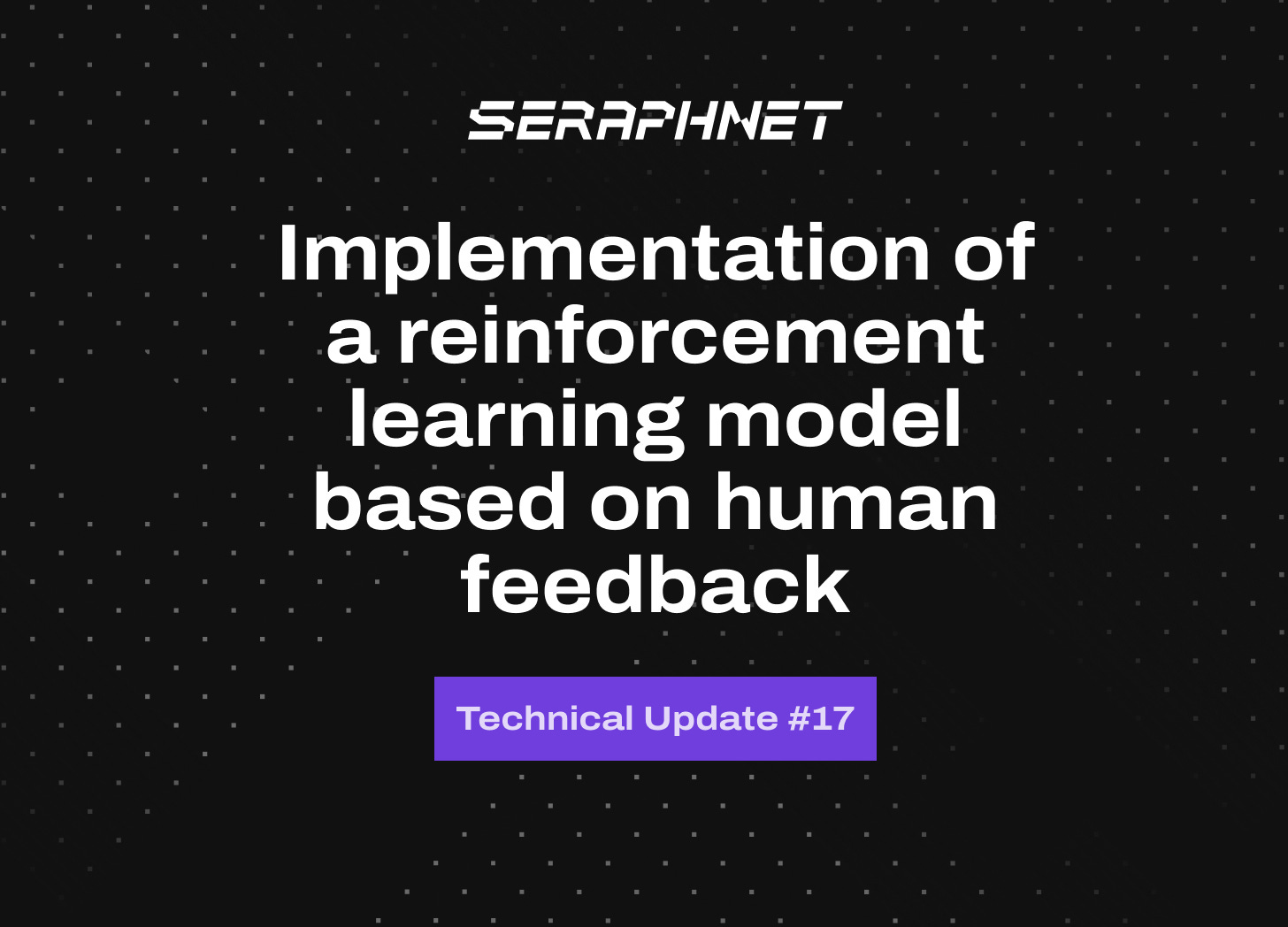Technical Update #17: Implementation of reinforcement learning model based on human feedback
Aligning AI with Human Values
In our relentless pursuit to enhance the capabilities and ethical behavior of AI systems, we have made a significant advancement by implementing Reinforcement Learning from Human Feedback (RLHF). This update marks a critical step towards creating AI agents that are not only technically proficient but also aligned with human values, preferences, and ethical standards.
Introduction to Reinforcement Learning from Human Feedback (RLHF)
Reinforcement Learning from Human Feedback (RLHF) represents a paradigm shift in the way AI systems learn and adapt. Traditional AI training methodologies rely heavily on predefined metrics and rules, often resulting in rigid systems that may struggle to navigate the complexities of human preferences and ethical considerations. RLHF, however, integrates human feedback directly into the AI's reward function, allowing the agent to learn and evolve based on real-time human judgments.
By leveraging this approach, AI agents can better understand and respond to complex human preferences, adapt dynamically to new information, and navigate ambiguities with a level of nuance previously unattainable. This leads to AI systems that are more aligned with human goals, values, and expectations, ultimately enhancing their effectiveness, ethical behavior, and user satisfaction.
Core Components of RLHF in AI Systems
Human-Centered Reward Function: At the heart of RLHF is the integration of human feedback into the reward function of AI agents. Instead of relying solely on static, predefined metrics, the AI system continuously learns from human inputs. This allows the agent to prioritize outcomes that align with human values, preferences, and ethical standards.
Real-Time Adaptation: RLHF enables AI agents to adapt to new information and changing environments in real-time. As human feedback is received, the agent adjusts its behavior accordingly, ensuring that it remains aligned with the evolving expectations and needs of its users.
Ethical Decision-Making: Incorporating ethical considerations into AI decision-making processes is a key focus of RLHF. By understanding and internalizing human values, AI agents can make decisions that are not only effective but also ethically sound, reducing the risk of unintended consequences.
Enhanced User Experience: By aligning AI behavior with human preferences, RLHF significantly improves the user experience. AI agents become more capable of delivering personalized, context-aware responses that resonate with users on a deeper level.
Application of RLHF in Generative AI Systems
The implementation of RLHF is particularly impactful in the realm of generative AI, where the quality and alignment of generated content are paramount. Generative AI agents, such as those used in large language models (LLMs) and creative AI systems, benefit greatly from human feedback. This process enables these agents to produce content that is not only technically accurate but also culturally sensitive, ethically responsible, and aligned with human expectations.
Fine-Tuning Content Generation: RLHF helps generative AI systems refine their outputs by incorporating human judgments into the training process. This ensures that the generated content is relevant, respectful, and free from biases, ultimately leading to higher-quality, more trustworthy outputs.
Personalization and Relevance: By learning from human feedback, generative AI agents can tailor their content to meet the specific needs and preferences of individual users. This personalization enhances user engagement and satisfaction, making the AI system more effective and user-friendly.
Ethical and Safe Deployment: The integration of RLHF in generative AI systems also addresses concerns related to ethical behavior and safety. By prioritizing human values and ethical considerations, AI agents are better equipped to avoid generating harmful or inappropriate content, ensuring responsible deployment across various applications.
Challenges and Future Directions
While the benefits of RLHF are substantial, the implementation of this approach is not without challenges. Ensuring that the feedback loop is accurate, reliable, and representative of diverse human values is a complex task. Additionally, the computational demands of real-time adaptation and learning from human feedback can be significant.
Looking forward, our focus will be on refining the RLHF framework to enhance its scalability and efficiency. This will involve developing more sophisticated feedback mechanisms, improving the interpretability of AI decisions, and exploring ways to incorporate a broader range of human values and ethical principles into the learning process.



Pretty Solid d:)